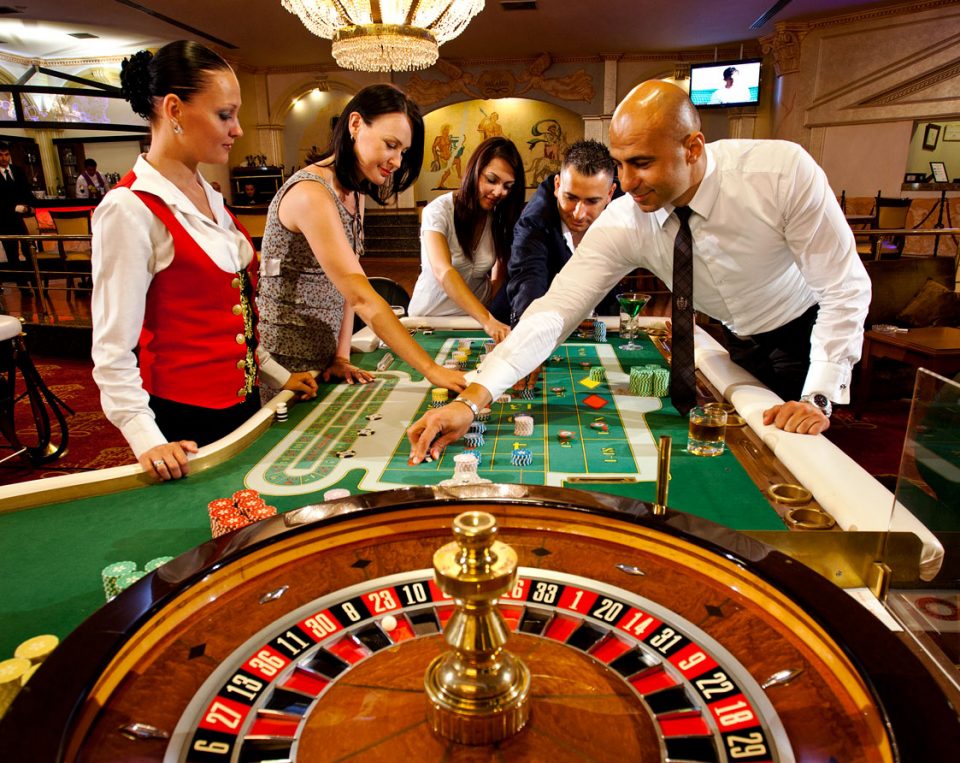
Gambling games have fascinated players throughout history, transforming from simple pastimes to sophisticated forms of entertainment that integrate chance, skill, and entertainment. From the historical origins of gambling in civilizations such as ancient Mesopotamia and Rome to the extravagant corridors of contemporary casinos, the evolution of these games uncovers much about human nature and our relationship with chance. As societies have intertwined and innovation has progressed, casino games have transformed, illustrating the changes in society and developments in gameplay.
The primitive versions of gambling likely involved elementary games involving dice and betting on the outcomes of sporting events. As time passed, these basic forms of gambling grew into more structured games like card games, the game of roulette, and the multitude slot games that fill the premises of casinos today. Every generation brought its own set of rules, design elements, and cultural importance. At present, casino games continue to evolve with the rise of digital gaming platforms, enabling players from all corners of the globe to participate in a shared experience, further fusing the traditional with the age of technology.
Ancient Origins of Gaming Games
Gambling activities have origins that extend back to old civilizations, where wagering was profoundly entrenched in social practices and cultural customs. The first known instances of betting emerged in Mesopotamia around three thousand BC, involving primitive dice games made from knuckle material. These primitive games laid the foundation for more complex gambling activities, reflecting humans’ instinctive urge to seek wealth and amusement through luck.
As civilizations progressed, so did their betting pursuits. In early China, around two thousand three hundred BC, tiles were discovered that looked like primitive basic versions of a lottery game. More organized forms of betting arose in the Roman civilization, where activities of luck were a frequent recreation, often occurring in social gatherings. The ancient Romans developed various wagering games, which composed die and board games, highlighting the widespread nature of gambling across different economic strata.
With the flow of time, these early games influenced the evolution of contemporary casino games. In the Middle Ages, card activities became prevalent in Europe, paving the way for the organized gambling venues we know today. The change from informal betting to formal gambling in taverns and private houses marked a significant change in how people engaged with games of chance, leading to the subsequent creation of casinos as specialized venues for betting.
The Emergence of Modern Casino Gaming
The final 20th century marked a significant shift in the world of gaming, fueled by tech innovations and shifts in societal views towards wagering. The emergence of computers and the World Wide Web transformed the way gamblers interacted with their beloved casino games. Virtual casinos emerged, allowing players to enjoy timeless table games like Texas Hold’em and blackjack from the comfort of their houses. This emerging digital landscape not only expanded access to casino games but also drew in a fresh audience who found the comfort and variety tempting.
As online gambling gained popularity, so did developments in gaming technology. The advancement of sophisticated software and graphics converted classic gambling games into engaging adventures. Gamblers could now connect with authentic dealers through live feeds, importing the vibe of physical casinos directly into their living rooms. This fusion of live gaming with digital interfaces created a novel combination that enhanced the community element of playing, making it possible for individuals to engage and compete with fellow gamers around the world.
Additionally, the rise of mobile gaming significantly changed the casino landscape. With the widespread use of smartphones and touch devices, gamblers can access their beloved casino games everywhere, whenever. Mobile apps offer a vast array of options optimized for mobile screens, serving the busy lifestyle of contemporary gamers. This availability has led to increased engagement in casino games, contributing to the exponential growth of the gambling sector. As a result, the future of the gaming industry continues to progress, adapting to new technologies and changing consumer preferences.
How Technology Influences Casino Games
Technology’s advancement has greatly changed casino games, improving the overall gaming experience for gamblers globally. With the introduction of the internet, online casinos emerged, allowing players to enjoy their favorite games from the safety of their own homes. This change not only made casino games more available but also expanded the variety of games available, as online platforms could offer many different versions of traditional games without the limitations of brick-and-mortar establishments.
The rise of mobile technology further revolutionized the casino gaming landscape. As smartphones and tablets became widespread, players now have the ability to play casino games whenever and wherever they want. This mobility has led to the development of dedicated mobile applications and optimized websites that offer smooth gaming experiences. Additionally, advancements such as live dealer games have delivered the genuine feel of a casino into players’ homes, connecting between physical and online gaming.
Moreover, advancements in AI and VR are paving the way for the next generation of casino games. AI enhances game design and player interaction, creating customized experiences based on user behavior and preferences. Meanwhile, virtual reality offers immersive environments where players can engage in a simulated casino setting, making the gaming experience more exciting and realistic. As technology continues to evolve, the future of casino games looks promising, filled with limitless opportunities for advancements and entertainment. https://tx88i.com/